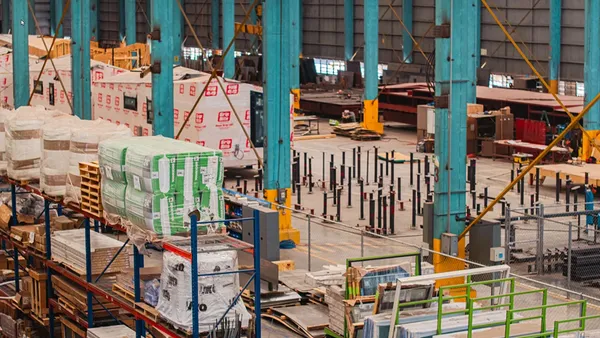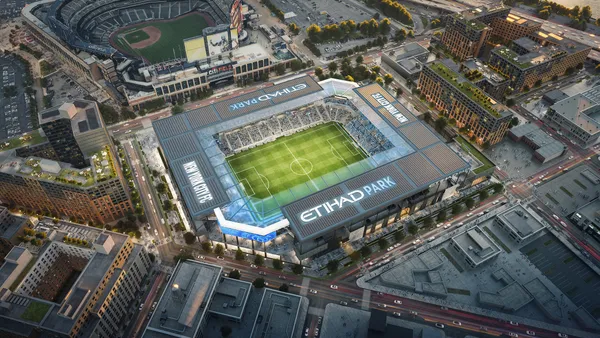As U.S. contractors deal with the rising costs of both material and labor, the latter of which is driven partially by a shortage of skilled workers, three of the country’s biggest construction industry players — AECOM, Tutor Perini and Jacobs Engineering Group — reported their most recent quarterly earnings this week, proving that despite these challenges, there are still plenty of opportunities.
March saw the end of the second quarter of Jacobs’ fiscal year 2019, and company executives reported that the firm’s gross revenue for the quarter was $3.1 billion, up 7.7% from the same period a year ago. Net revenue increased 8.7% year over year, from $2.3 billion to $2.5 billion.
Q2 gross revenue for the company’s Building, Infrastructure and Advanced Facilities (BIAF) business was more than $2 billion, up from last year’s Q2 figure of $1.9 billion, delivering $172.7 million in segment operating profit. This growth was driven, in part, by the "further optimization of CH2M integration synergies,” said Steven Demetriou, company chair and CEO. Jacobs purchased CH2M in a $3.3 billion deal in 2017.
The company’s second-quarter backlog grew 11% year over year to $13 billion. Big wins for Jacobs’ BIAF segment this quarter included contracts for a vaccine manufacturing plant in the southeast U.S.; IDIQ contracts with the U.S. Army Corps of Engineers; and the MetroLink in Toronto.
Tutor Perini's first-quarter 2019 revenue fell a bit from the same period last year — $958.5 million from more than $1 billion — mostly due to new projects not starting in time to make up for the lower revenues of projects that are either complete or nearing completion. Bad weather in some areas of the country also had a negative impact on revenue in the company’s Q1.
However, income from construction operations was $22.9 million in Tutor Perini's first quarter, up from a loss of $900,000 in the first quarter of 2018.
Tutor Perini also broke some company records in its first quarter — $3.2 billion of new awards and upward adjustments in current contracts, as well as an $11.6 billion backlog. New awards for Q1 included the $1.4 billion Purple Line Section 3 Stations project in Los Angeles; the $253 million Culver Line Communications-Based Train Control project for the Metropolitan Transportation Authority (MTA) in New York City; and the $200 million Southland Gaming Casino and Hotel project in West Memphis, Arkansas, through its subsidiary Roy Anderson Corp.
“As these and other recent awards progress and contribute more meaningfully as the year develops,” said Ronald Tutor, chairman and CEO, "we expect to report significantly improved financial results.”
AECOM also had good news for investors this week, reporting revenue of $5 billion for its 2019 Q2, up 5% from the second quarter of last year, with positive contributions from all of the company’s construction-related segments.
Construction Services revenue increased 2% from Q2 2018 to $1.9 billion, driven mostly by its civil construction and energy businesses, which offset a small slowdown in building construction. The company’s building construction business alone, however, according to a Seeking Alpha transcript, has 10 projects worth more than $1 billion each. Revenue for AECOM’s Design & Consulting Services segment grew by 5% year over year to $2.1 billion, thanks to strong demand in the water and transportation markets.
The company’s Management Services revenue was $1 billion, representing an increase of 14% from its 2018 Q2. This growth is attributable to demand from its clients in the public and private sectors, in particular, the departments of Defense and Energy.
AECOM ended its Q2 with a whopping backlog of $61 billion, which included new contract awards of more than $8 billion.
Looking ahead, company executives said AECOM is positioned to benefit from a $50 billion MTA spending program in New York City during the next five years, as well as large infrastructure projects in Canada and around the world.














